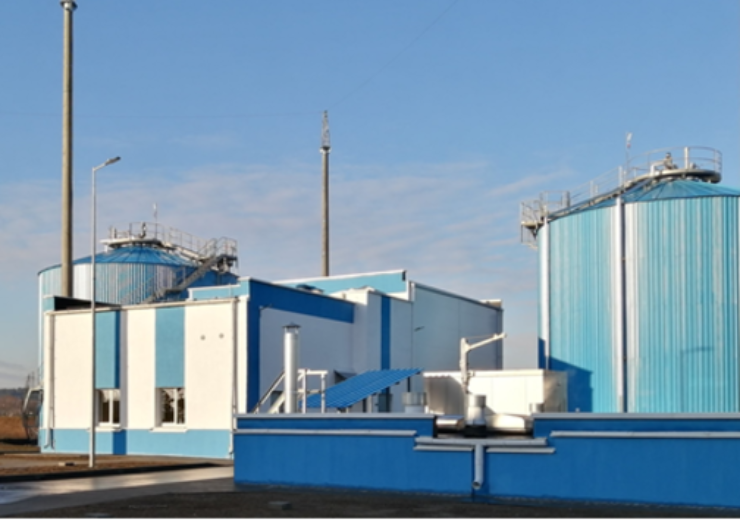The biogas units, which are financed with a €2.85m EBRD loan, will produce around 2GWh of clean energy annually

The newly installed biogas facility at a water treatment facility in Slonim. (Credit: European Bank for Reconstruction and Development)
The European Bank for Reconstruction and Development (EBRD) has provided €2.85m ($3.14m) for the establishment of 272kW biogas facilities at Slonim water utility in Belarus.
The project is also supported by grant funding from the government of Sweden and benefited from financial contributions from Austria and Finland. The two facilities are expected to offer significant energy savings, while reducing CO2 emissions.
Slonim now has two biogas co-generation units installed with a capacity of 136kW each, which meets nearly 70% of the energy consumption needs of Slonim’s wastewater treatment plant.
The two biogas facilities are expected to generate significant savings in hydrocarbons
The two facilities are expected to generate significant savings in hydrocarbons which is equivalent of more than 500,000 m³ of gas or more than 625,000 litres of oil. They will also help in reducing CO2 emissions of over 246 tonnes.
The amount of energy generated from the new biogas facilities is equivalent of providing street lighting for a municipality much larger than Slonim, or satisfying the energy needs of 1,120 average Belarusian households.
EBRD stated: “The benchmark project is expected to pave the way for similar energy efficient solutions in other Belarusian municipalities and help adopt better wastewater sludge treatment practices, which may be eventually processed into fertilisers.”
Last November, EBRD supported Belarus by offering €26.8m ($29.5m) for wastewater treatment facilities across seven Belarusian municipalities. The facilities will serve nearly 300,000 inhabitants.
The loan will be used for the refurbishment and the reconstruction of near-obsolete wastewater treatment facilities in the towns of Kletsk, Lyuban, Fanipol, Baranovichi, Bereza, Zhlobin and Shklov to meet relevant national and EU standards.
The investment is also expected to have environmental benefits for the country, as nearly 38,100 tonnes of CO2 emissions could be reduced annually, apart from nitrogen, phosphorus and other emissions.
